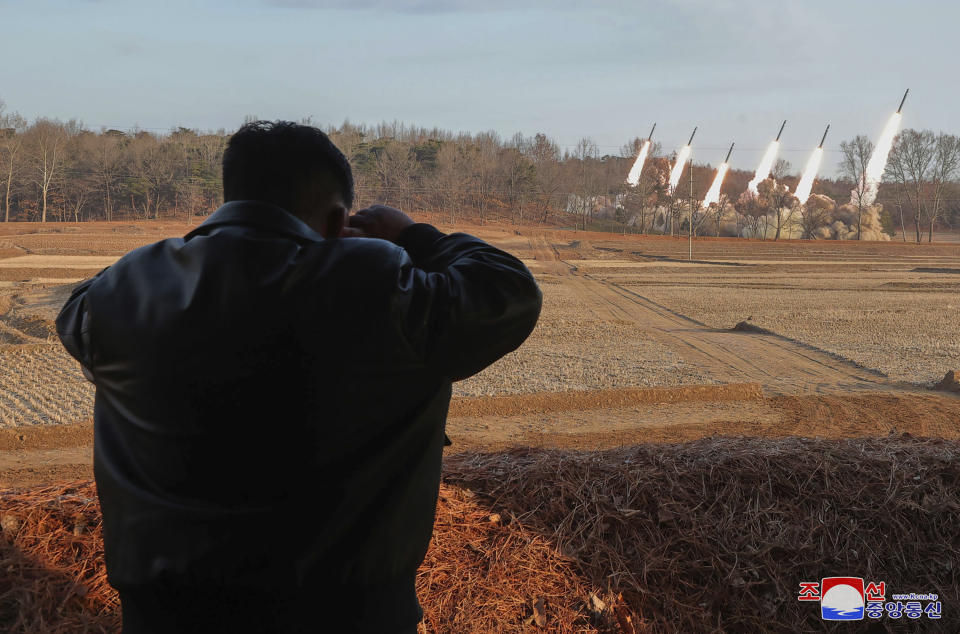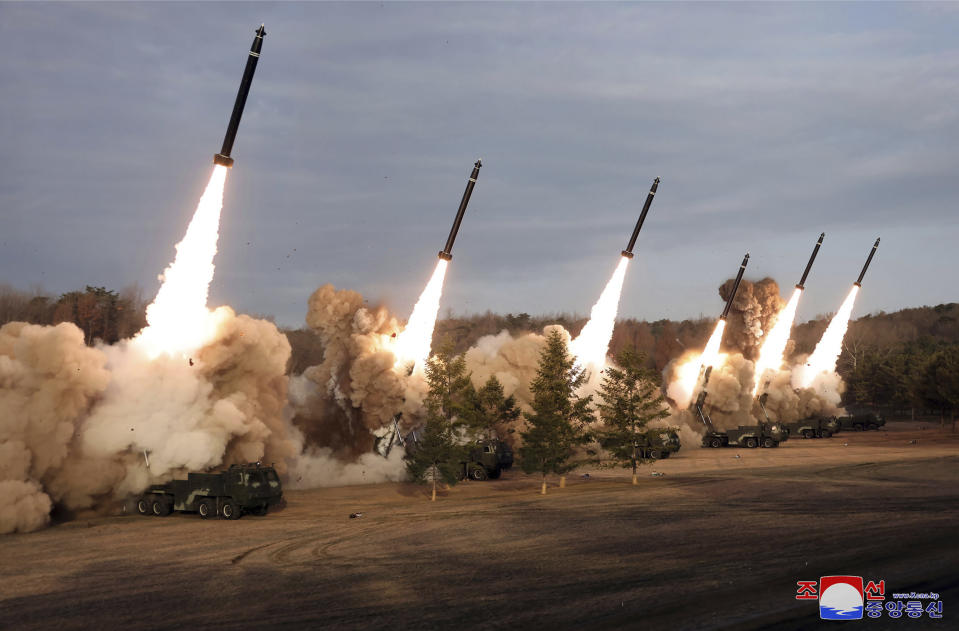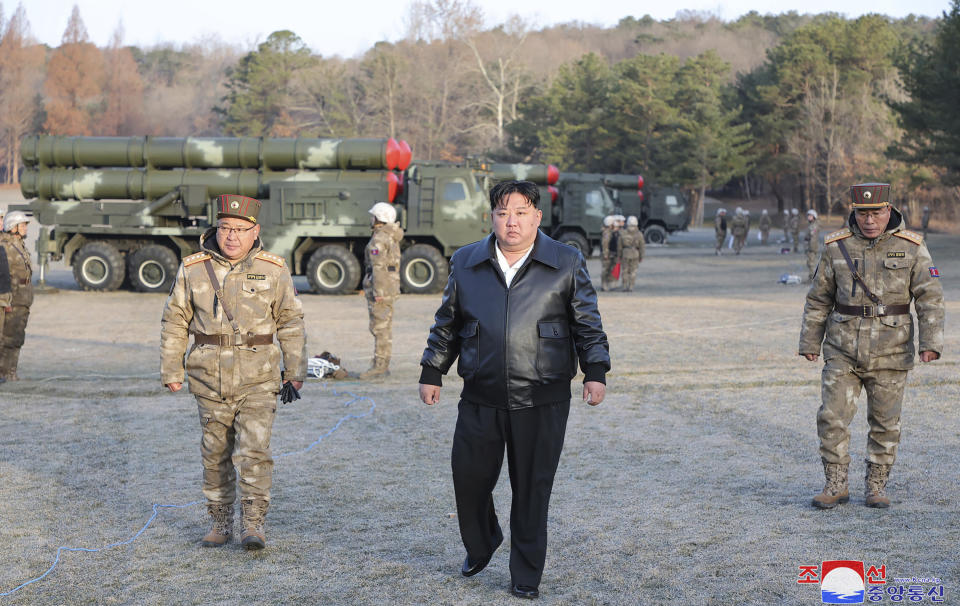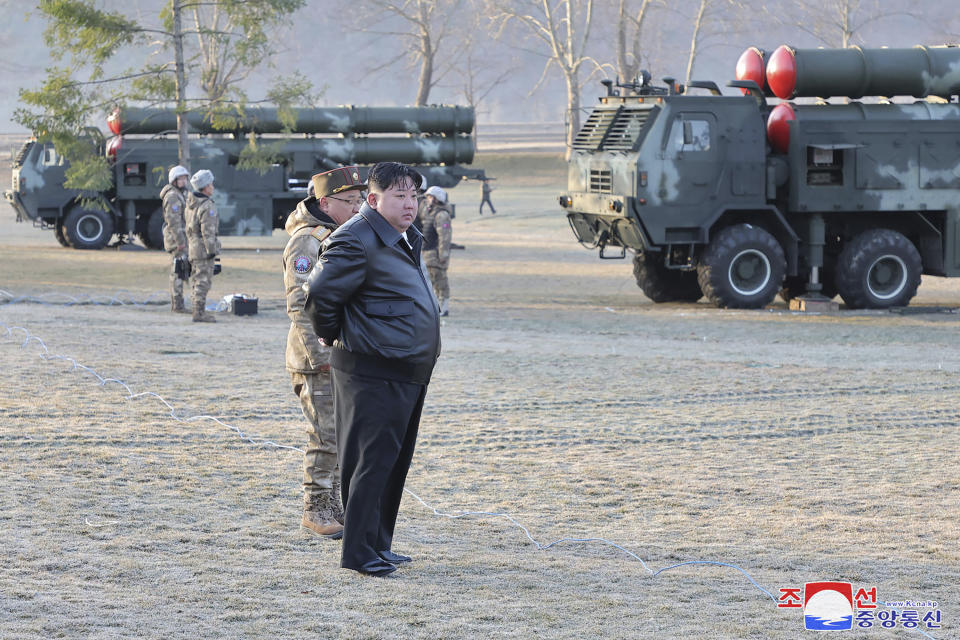North Korea says Kim Jong Un supervised tests of rocket launchers targeting Seoul
SEOUL, South Korea (AP) — North Korean leader Kim Jong Un supervised a live-fire drill of nuclear-capable “super-large” multiple rocket launchers designed to target South Korea's capital as he vowed to boost his war deterrent in the face of deepening confrontations with rivals, state media said Tuesday.
The report came a day after South Korea and Japan said they detected North Korea firing multiple short-range ballistic missiles toward waters off its eastern coast, adding to a streak of weapons displays that have raised regional tensions.
Experts say North Korea’s large-sized artillery rockets blur the boundaries between artillery systems and ballistic missiles because they can create their own thrust and are guided during delivery. The North has described some of these systems, including the 600mm multiple rocket launchers that were tested Monday, as capable of delivering tactical nuclear warheads.
Photos published by the North’s official Korean Central News Agency showed at least six rockets being fired simultaneously from launch vehicles and flames and smoke blanketing what appeared to be a small island target.
South Korea's Joint Chiefs of Staff said later Tuesday that it assesses North Korea conducted more launches than what was shown on the photos. Lt. Col. Lee Chang-hyun, a deputy JCS spokesperson, said that South Korea categorizes the North Korean weapons system tested Monday as a ballistic missile in view of its characteristics and capacities.
KCNA also said North Korean troops in a separate test simulated exploding an artillery shell at a preset altitude. The report didn't specify whether that test was to rehearse how a nuclear weapon would be detonated over an enemy target.
Kim called the 600mm multiple rocket launchers key parts of his arsenal of weapons that are supposedly capable of destroying Seoul if another war breaks out on the Korean Peninsula.
“(Kim) said that it is necessary to further impress upon the enemies that if an armed conflict and a war break out, they can never avoid disastrous consequences,” the KCNA said. He called for his army to “more thoroughly fulfill their missions to block and suppress the possibility of war with the constant perfect preparedness to collapse the capital of the enemy and the structure of its military forces.”
Lee, the South Korean deputy spokesperson, said South Korea and the United States have been bolstering their response capabilities against North Korea's increasing nuclear threats.
North Korea’s launches came days after the end of the latest South Korean-U.S. combined military drills that the North portrays as an invasion rehearsal. It was unclear whether the North timed the launches with a visit to Seoul by U.S. Secretary of State Antony Blinken, who on Monday attended a democracy summit and held talks with South Korean officials over the North Korean threat.
Tensions on the Korean Peninsula have risen since 2022, after Kim used Russia’s invasion of Ukraine as a distraction to accelerate his testing of missiles and other weapons. The United States and South Korea have responded by expanding their combined training and trilateral drills involving Japan and updating their deterrence strategies built around strategic U.S. assets.
There are concerns that North Korea could further dial up pressure in an election year in the United States and South Korea.
In a fiery speech to Pyongyang’s rubber-stamp parliament in January, Kim declared that he was abandoning North Korea’s long-standing goal of reconciliation with the South and ordered the rewriting of the North’s constitution to cement its war-divided rival as its most hostile adversary. He said the new charter must specify North Korea would annex and subjugate the South if another war broke out.
__
Associated Press writer Hyung-jin Kim contributed to this report.
___
Follow AP's Asia-Pacific coverage at https://apnews.com/hub/asia-pacific





